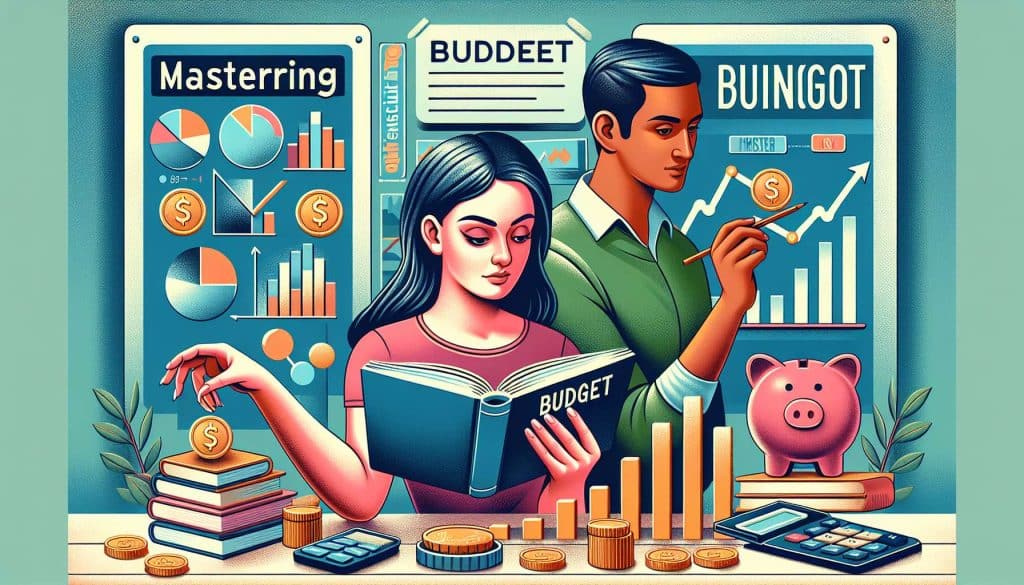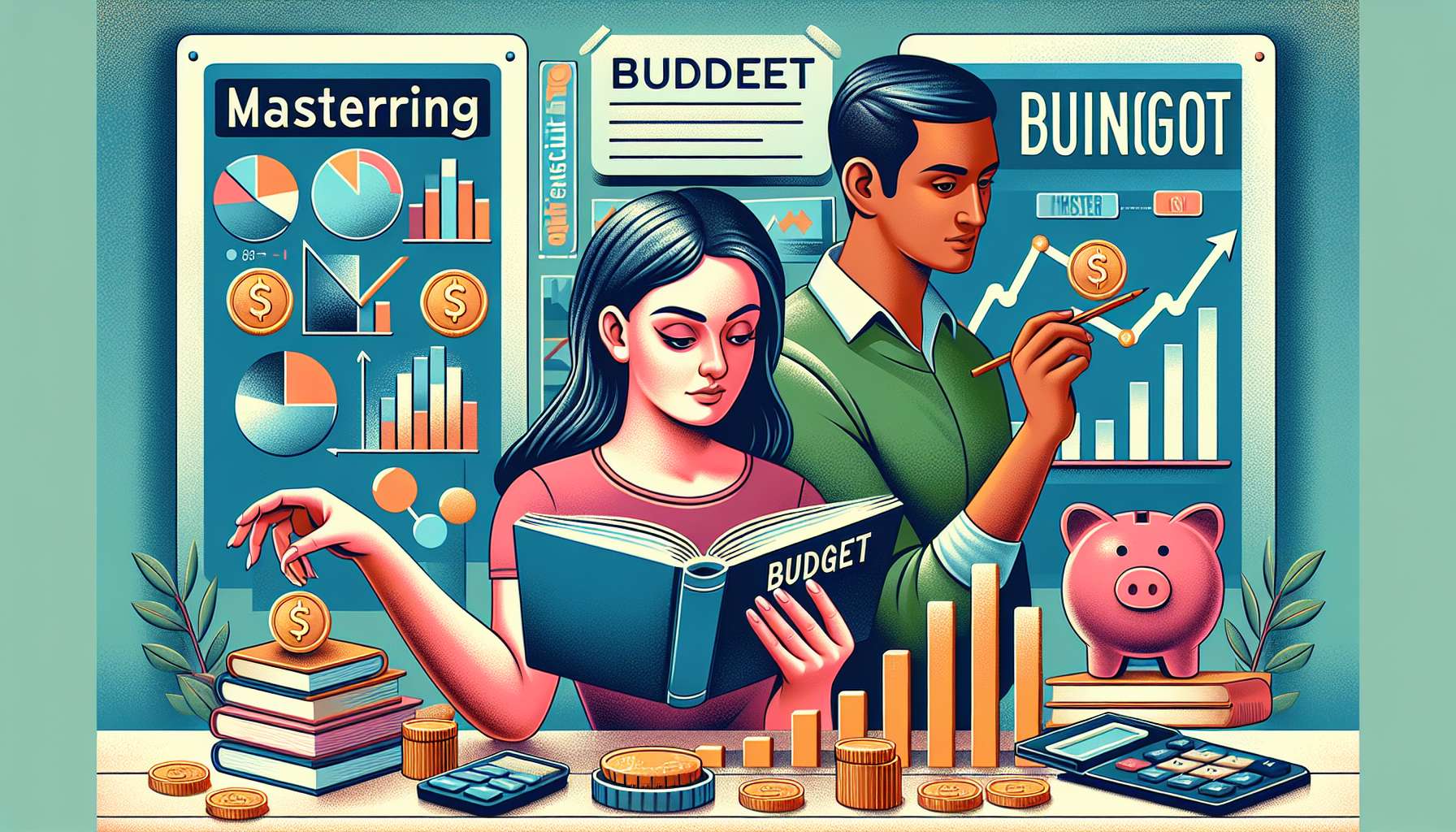Mastering Personal Budgeting: Effective Tips for Financial Control

Anúncios

Effective Personal Budgeting: A Comprehensive Guide to Financial Stability
Managing personal finances can be overwhelming, especially in our fast-paced world. Rising living costs, unforeseen expenses, and fluctuating incomes make financial stability a challenge for many. Individuals often find themselves unprepared to tackle these monetary hurdles head-on. Personal budgeting serves as a proactive tool, empowering people to organize their finances, forecast their spending habits, and lay the groundwork for a prosperous financial future. In this article, we delve into essential personal budgeting techniques and strategies that can significantly enhance your financial health.
In essence, personal budgeting is about creating a financial blueprint tailored to your unique needs and lifestyle. It involves tracking income, categorizing spending, and setting financial goals. This strategy allows individuals to understand their financial behavior better and introduce necessary adjustments to stay within their means. In turn, this financial discipline not only prevents unnecessary debt but also promotes savings and investments, paving the way for financial security.
The relevance of personal budgeting can’t be overstated. It equips individuals with the confidence to make informed decisions regarding their finances. By accurately assessing your financial status, you can pinpoint areas where excessive spending occurs, redirect funds towards savings, and ensure better preparation for future financial opportunities or emergencies. Whether you’re saving for a car, planning a vacation, or aiming for debt-free living, establishing and adhering to a budget is the first step towards achieving those ambitions.
Anúncios
Properly managing your finances starts with taking stock of where you currently stand. Begin by tracking your income and make a list of fixed and variable expenses. This understanding is critical for identifying spending patterns and developing a plan that suits your needs. Once a clear picture is formed, setting financial goals becomes a crucial next step. These goals should be both short-term and long-term, allowing for emergencies, debt repayment, and future investments such as retirement savings.
To simplify the budgeting process, consider the 50/30/20 rule—a popular method where 50% of income is allocated to needs, 30% to wants, and 20% to savings and debt repayment. This approach offers a practical breakdown that aligns daily spending with broader financial aspirations. Consistently monitoring your budget is also essential—regular reviews help account for unforeseen changes and keep financial plans aligned with current circumstances. Whether through manual tracking or budgeting apps, staying aware of your financial landscape is crucial for long-term success.
Budgeting is not only about controlling expenses but also about embracing opportunities. By mastering the art of budgeting, individuals can make strategic financial decisions that propel them closer to their desired goals. Technology has made this process more accessible—numerous apps and tools offer insights into spending habits and provide reminders, making it easier than ever to stick to a budget. Additionally, avoiding common pitfalls like failing to track all expenses, being over-restricted, or ignoring savings, can significantly enhance the effectiveness of a budget.
Anúncios
Ultimately, personal budgeting is about rendering yourself capable of making strategic financial choices. It brings structure, clarity, and foresight to personal finance management, which are essential for long-term stability. Whether through traditional methods or modern tools, the goal remains the same—financial discipline that prevents unnecessary debt, facilitates saving, and aligns with one’s aspirations. Remember, consistent efforts in budgeting today pave the way for a financially stable tomorrow.
Key Characteristics of Personal Budgeting
-
Tracking Income: Understanding total monthly inflow for accurate budgeting.
-
Listing Expenses: Differentiating fixed costs from variable expenditures.
-
Goal Setting: Establishing clear short and long-term financial objectives.
-
Utilizing Techniques: Adopting methods like the 50/30/20 rule for simplicity.
Benefits of Personal Budgeting
Personal budgeting provides several significant perks. It enhances financial awareness, allowing individuals to see where money is going and identify areas for cost reduction. This newfound clarity leads to increased savings and reduced financial stress—fundamental components for a secure financial future. Budgeting also enhances decision-making skills, enabling more strategic planning regarding expenses, investments, and savings, giving you a proactive handle on finances.
With a budget, you can comfortably navigate through life’s uncertainties. Having an emergency fund alleviates potential stress caused by unexpected expenditures. Furthermore, by prioritizing debt repayment, a budget helps minimize overall interest payments and promotes financial independence. Budgeting instills confidence, enabling individuals to pursue goals like retirement planning, purchasing a home, or starting a business without fear of financial setbacks.
Another central benefit of budgeting is that it fosters healthy financial habits. Through consistent tracking and analysis of expenses, it becomes easier to adapt spending behaviors to accommodate savings goals. This practice translates into long-term benefits, such as improved credit scores and the ability to take calculated financial risks, confidently stepping toward a secure future.
Moreover, budgeting empowers individuals to make informed lifestyle choices. Understanding financial limitations and consciously deciding expenditures paves the way for a balanced life, where personal enjoyment doesn’t compromise financial health. The discipline gained from regular budgeting enhances self-control, promoting the philosophy of living within one’s means and significantly improving the overall quality of life.
In conclusion, effective personal budgeting transcends mere financial planning—it embodies a mindset shift toward financial resilience. By incorporating strategic budgeting techniques and avoiding common pitfalls, individuals pave a path toward financial sustainability, ultimately achieving peace of mind and security. A budget isn’t just an allocation of numbers; it’s a commitment to taking charge of your financial future and fostering a lifestyle of informed richness and continuous growth.





